42 & 43 “Must Be Born Again” and “Oh Death Where Is Thy Sting” by Rev. J.M. Gates
8November 6, 2010 by gadaya
“Oh Death, Where is Thy Sting”
We are now entering the “Religious” set of the Anthology with two short tracks (these are excerpts from a long 12-inch 78rpm record) by Rev. J.M Gates, the most prolific preacher ever recorded. The recording industry began to issue records by Southern Baptists preachers in the 1920’s and like Blues singers of their “Race” catalogue, marketed them mostly to the black population of the South. Some of this early sermons, like “The Downfall of Nebuchadnezzar” by Kansas City preacher Rev. J.C. Burnett recorded in 1926, sold very well indeed (By 1927 it was stated that 400,000 copies were sold!) and many other preachers were recorded during those years before the Depression.
“The Downfall of Nebuchadnezzar” by Rev. J.C. Burnett (with singing by Sisters Ethel Grainger and Odette jackson)
Between April 1926 and October 1941 Rev. J.M Gates recorded 200 sides for twenty different labels, making him, along with The Carter Family and a few others, one of the most prolific Southern artist recorded during the Golden Age of the phonograph. It is said that his recorded output was over a quarter of all the sermons released during this period and even if it includes a lot of repetions and multiple recordings of the same sermons,there’s still a remarkable diversity of subjects and images used on all this recordings.
Born around 1885, he started to preach at age 25 in Alabama and took up the ministry of Mount Calvary Church in Rock Dale Park, Atlanta in 1914 and was still a pastor there at beginning of World War 2.
In the summer of 1926, Polk C. Brokeman, an Atlanta furniture-store owner and a talent scout for the Okeh label (he already launched Fiddlin’ John Carson’s career and the whole “Hillbilly” Records market in 1923) signed 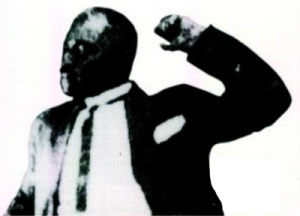 up the Reverend for an exclusive contract and by the end of that year, Gates already cut over 70 titles.
up the Reverend for an exclusive contract and by the end of that year, Gates already cut over 70 titles.
Most often his sermons were warnings against sins and bad behaviour with Hell raised as the inevitable consequence. One of his early hit was “Death’s Black Train is coming”, a hair-rising sermon he would record again several times at his first sessions.
In fact, the symbol of the “funeral train” is recurrent in his sermons:
“You Belong to that funeral train”
Other popular sermons from this first session:
“Goin’ to die with that stuff in my hand”
“The Dying Gambler”
All this preachers did their best to recreate on record the atmosphere of a Southern Baptist Church and some members of their congregation were almost always present in the studio to provide the calls and responses so important to the African-american culture and religion. The shoutings of “Yes, Sir” and other spontenaous reactions of the crowd were most of the time punctuating the sermons. The results are sometimes staggering and offers to the listener a unique listening experience. Rev. Gates was an incredible preacher with a commanding voice, often ending his sermons in a frenzy.
“…(he) possessed magnetism and an imagination so free and daring that he was able to carry through what other preachers would not attempt.He knew all the arts and tricks of oratory, the modulation of the voice to almost a whisper, the pause for effect, The rise through light, rapid-fire sentences to the terrific, thundering outburst of an electryfying climax”.
This quote is from James Weldon Johnson who wrote it early in the 20th century about John Brown, a Georgia preacher, could have been written about Gates at his best moments as well.
In his early recordings, Gates drew many of his sermons from the Bible, Old and New Testament, including Biblical characters and imagery, using also the Spirituals traditionally sung in black churches. Here are a few of them:
” Dry Bones in the Valley”
“Just as soon as my feet strikes Zion”
“Moses in the Wilderness”
The most important aspect of Baptism religion is the rite of total immersion in water (the word “Baptism” itself comes from the Greek “Baptizo” which means “Immersion” “ablution). The whole congregation would meet on the banks of a river (usually called “Jordan” for the occasion) and each candidate seeking admission to the church would be led to the water and dipped three times, “leaving his sins behind”. They were usually wearing long white robes “which were carefully put away after the ceremony to serve as their shroud some day”.
Maybe one of the most authentic recording recreating a Baptism ceremony is Reverend R.M. Massey ‘s “Old-Time Baptism” (part 1 and 2), issued in 1928 by Paramount Records:
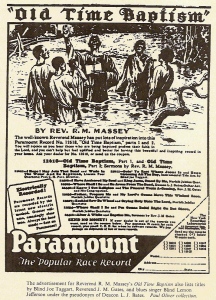
Part 1
Part 2
Rev. Gates recorded “Baptize me” several times, on which he sings with his congregation the song “Take me to the water”:
-For more recordings and superb old photographs of baptism ritual, there’s a beautiful book with cd called “Take me to the water” issued by the Dust-to-Digital label.
Gates was also adressing historical events of the day, and down-to-earth issues in his sermons, using sometimes the same imagery and parables found in The Bible but also in a more straightforward way or even using humor to tramsmit his message.
“God’s Wrath in the St-Louis Cyclone”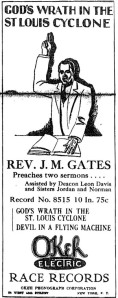
“The Flood of Alabama”
“Women spend to much money”
“Dead Cat on the Line”
Because of The Depression, Gates stayed 4 years without recording but when he returned to the studio in 1934 and until his last recording year in1941, he included politics and the events of the day more and more in his sermons:
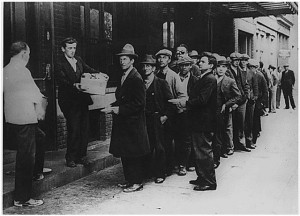
“No Breadline in Heaven”
“President Roosevelt is everybody’s friend”
“Hitler and Hell”
“When the war is over”
Gates was also famous for his Christmas sermons and he recorded a bunch of them during his career, including his very last recording, “Getting ready for Christmas Day”
“Where will you be on Christmas Day”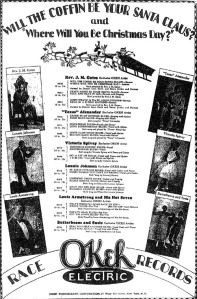
“Death might be your Santa Claus”
“Will the coffin be your Santa Claus”
“Getting Ready for Christmas Day”
The two Rev. Gates tracks Harry Smith selected for the Anthology were just excerpts from longer sermons, published on on a 12-inch 78rpm record. Let’s now listen to them in their complete version:
“Must Be Born Again”
“Oh Death Where is Thy Sting”
Rev. Benny Campbell also recorded a sermon called “You Must Be Born Again” at the end of the 1920’s, with nice singing and clapping at the end of the record:
Vaudeville singer and entertainer Bert Williams recorded a side called “O Death Where is Thy Sting” a few years before Gates where he’s picturing a preacher speaking to his congregation:
Gates died at the end of World War 2 and his funeral in Atlanta drew the largest crowd of any memorial service before Martin Luther King Jr. 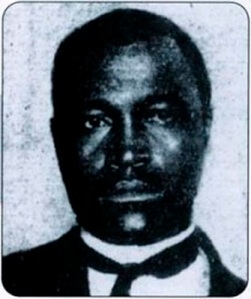
-For more reading about Rev. Gates and the history of black preachers’recordings i strongly recommend reading chapter 5 of Paul Oliver’s book “Songsters and saints” (Vocal traditions on Race records).
–Document Records has issued the complete recordings of Rev. Gates on 9 cd but you can also get a “Best-of” compilation issued by Sony/Columbia in their Roots’n Blues serie
-For more recordings of black preachers and other great american religious Blues, Gospel and Old-time music, there’s the amazing “Goodbye Babylon” box set issued by the excellent Dust-to-Digital label which is based in Gates’ city, Atlanta, Georgia (Cd 6 of the set is dedicated only to recorded sermons ) and also two great compilations in 4 volumes on Yazoo Records called “The Half Ain’t Never Been Told” and “How Can I Keep From Singing”
–Click here to download all the audio tracks for this post (30 mp3 tracks in Zip file)
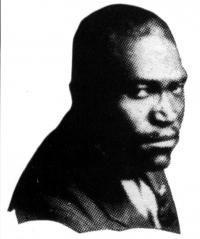
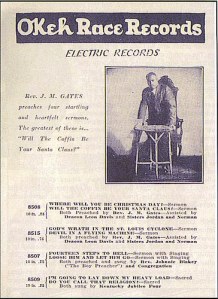
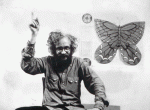
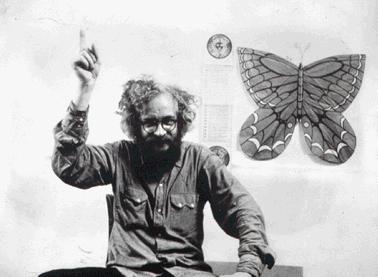







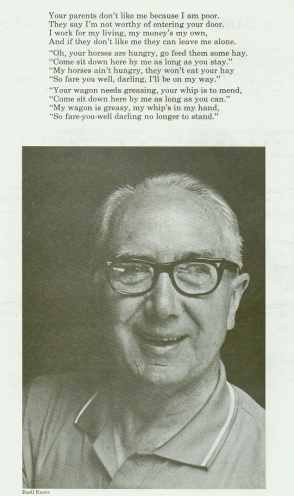
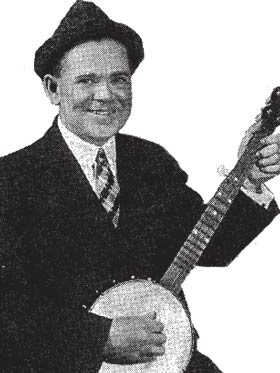
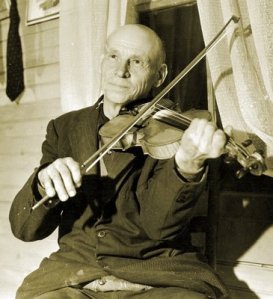


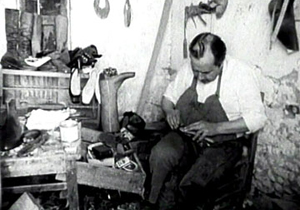
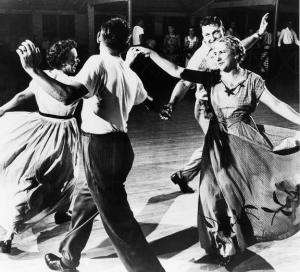




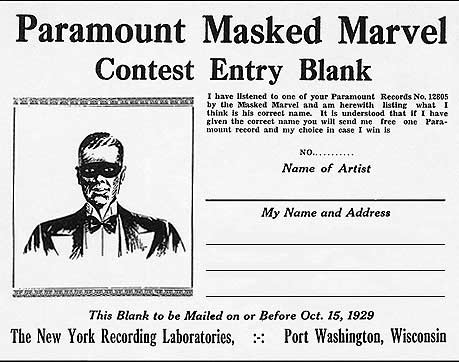

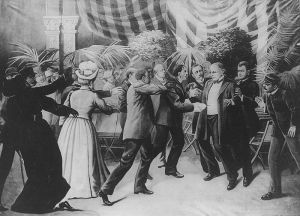





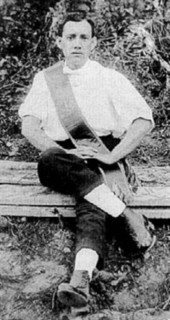
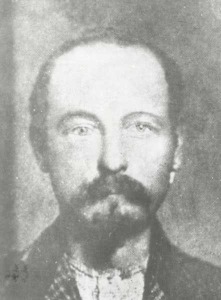
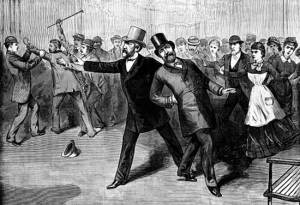
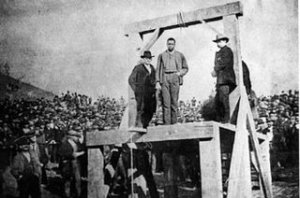
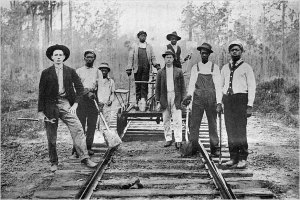







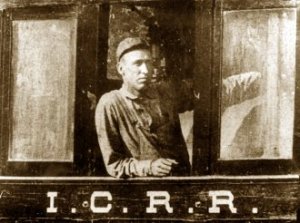





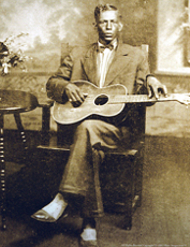
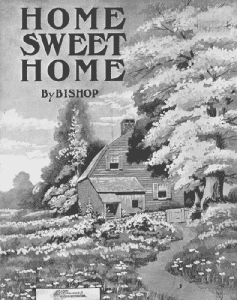



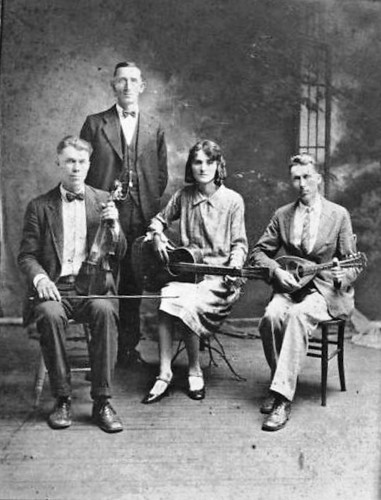




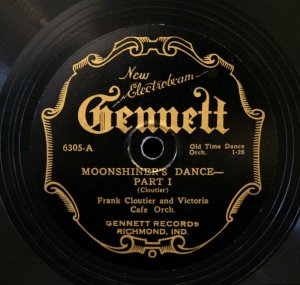











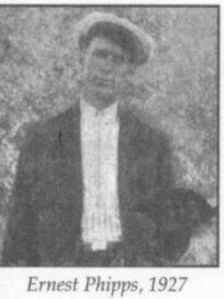






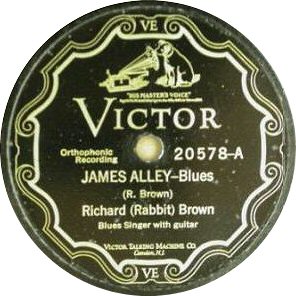
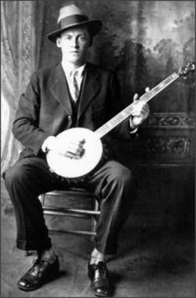


Thanks for your great work and all the research! One small comment: to most in the States, “Southern Baptist” refers to a particular denomination of Baptists, who even now are primarily white and would certainly have been so during Rev. Gates’ time. He was Southern, and a Baptist, but not a Southern Baptist. There are more varieties of Baptists, black and white, than you could imagine!
Great Post. Thanks for the time and the well-researched articles, and for the work getting this music out there.
Thanks gadaya,
This is, for me, one of the more obscure performers of the anthology, but one which shows the dark underbelly of southern church music; very interesting …… Now over half way to that magic 81 number!!!
Brian
This is fantastic! Thank you. I love what you’re doing here.
It bears mentioning that the expression, There’s a Dead Cat on the Line, has been misconstrued by language mavens as great as William Safire when all they needed to do was listen to the Rev JM Gates to learn the real answer. For some reason this expression has all sorts of random etymologies such as a dead catfish on a line, and none that I could find that referenced this song by Gates. Clearly he was either its author or else very close since to it since he explains quite clearly in the song what is meant by the image of the dead cat on the line. When the child does not favor or resemble the father in any way, when the traits have not been communicated like a blood borne telegram, then something is wrong and there is a dead cat on the line. What a wonderful image and song, and how odd that it is missing from most explanations of this expression. Here is William Safire’s treatment of the expression
http://books.google.com/books?id=nBeqgG1aqUkC&pg=PA278&lpg=PA278&dq=william+safire+dead+cat+on+the+line&source=bl&ots=S3s-IEgb9T&sig=Biu3LFWsrqkR5dN_hgHmPoXMjLk&hl=en&ei=QMjkTNXSB8Kblgf14Py2Cw&sa=X&oi=book_result&ct=result&resnum=2&ved=0CB4Q6AEwAQ#v=onepage&q&f=false
Hey,
I’ve been listening the anthology with this blogspot beside me. Great and amazing work. Thanjs and respect.
I have a question regarding “Oh Death where is they Sting”. Johnny Cash recorded in his American Recordings VI the song Corinthians. Are these songs basically from the same origin ?
Regards
Stefan
[…] speech by preacher and gospel singer, Reverend J.M. Gates. (For geeks like me, I found a link to the original sermon here. It is more than half way down the page.) The play of Simon’s wry lyrics about war, the economy, […]
[…] Day’, which samples and is constructed around a 1941 sermon by the Southern Baptist preacher Reverend J.M. Gates, Simon finds no solace in material things: From early in November to the last week of December I […]